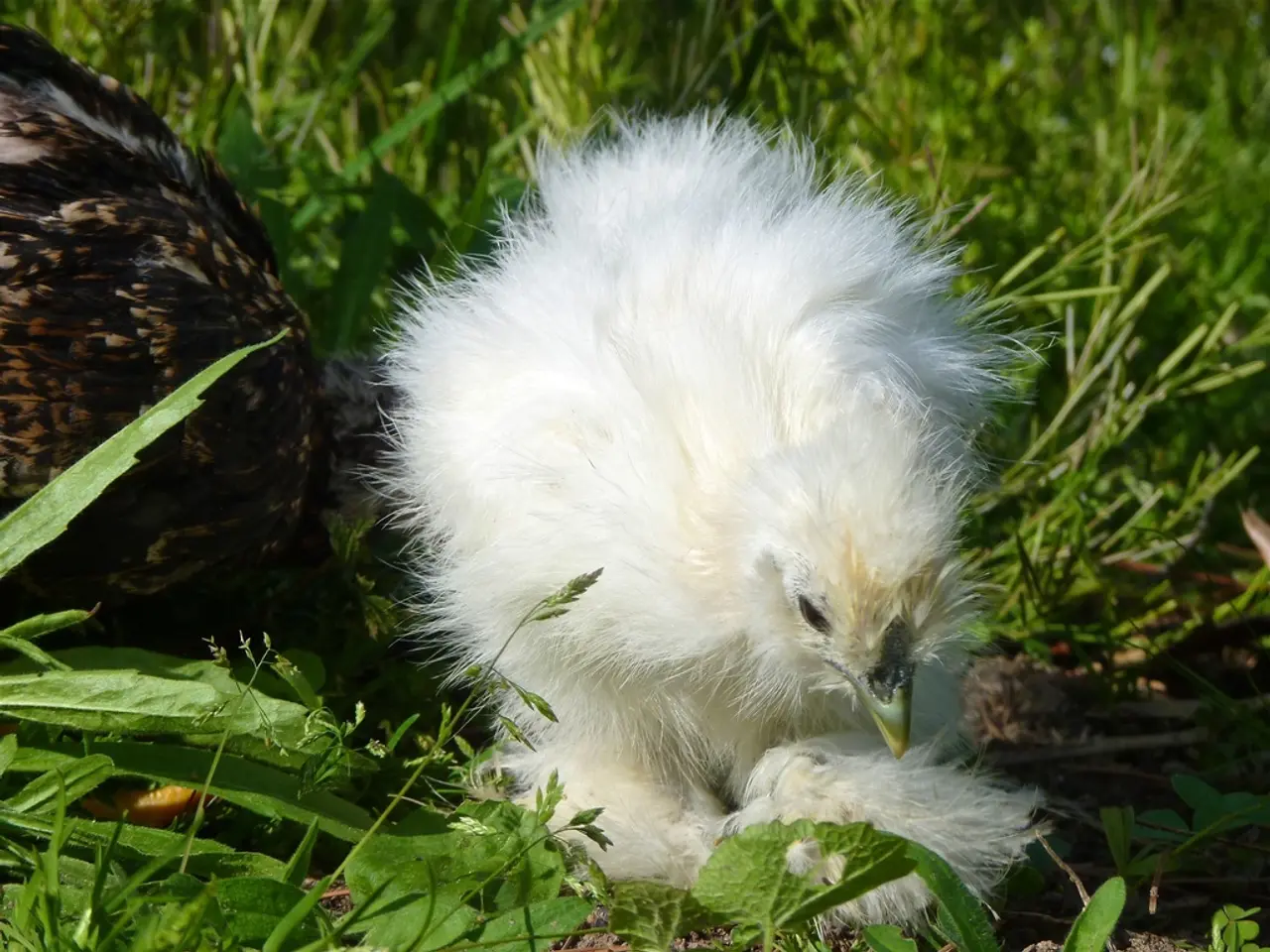Chicken Farmers Battle Salpingitis: A Growing Threat to Egg Production
Chicken farmers are facing a common yet serious issue: salpingitis, an infection of the hen's oviduct, leading to egg-laying difficulties. This bacterial infection, primarily caused by E. coli, Salmonella, and Mycoplasma, poses risks to both chicken owners and farmers.
Salpingitis, a bacterial infection of the hen's oviduct, is a significant issue in chicken farming. It leads to reduced egg production, misshapen or shell-less eggs, and can even cause hens to stop laying altogether. Symptoms include a swollen or hard belly, weakness, and loss of appetite. The condition is diagnosed through physical checks, egg production history, X-rays, or lab tests. Prevention involves maintaining clean coops, providing a balanced diet, reducing stress, regular health checks, and separating sick chickens. Treatment includes antibiotics prescribed by a vet, supportive care, and sometimes surgery in severe cases. Recovery depends on early treatment, the hen's age and health, and proper vet care.
Salpingitis, while not directly transmittable to humans, requires immediate attention and proper hygiene to prevent spread. It can lead to reduced egg production, treatment costs, and potential loss of valuable hens. Farmers and chicken owners must prioritize prevention and seek vet care promptly for affected hens to minimize the impact on their flocks.
Read also:
- Rise in Flu Cases: Timing and Reasons Explored by Medical Experts for Flu Vaccination
- Nursing Infants: Advantages, Factors to Ponder, Guidelines, Essential Gear
- Anticipated Increase in Uninsured Residents to Pose Challenge for Local Healthcare Infrastructure
- Accusations of poor care and supposedly poor hygienic standards at LaSalle Hospital




